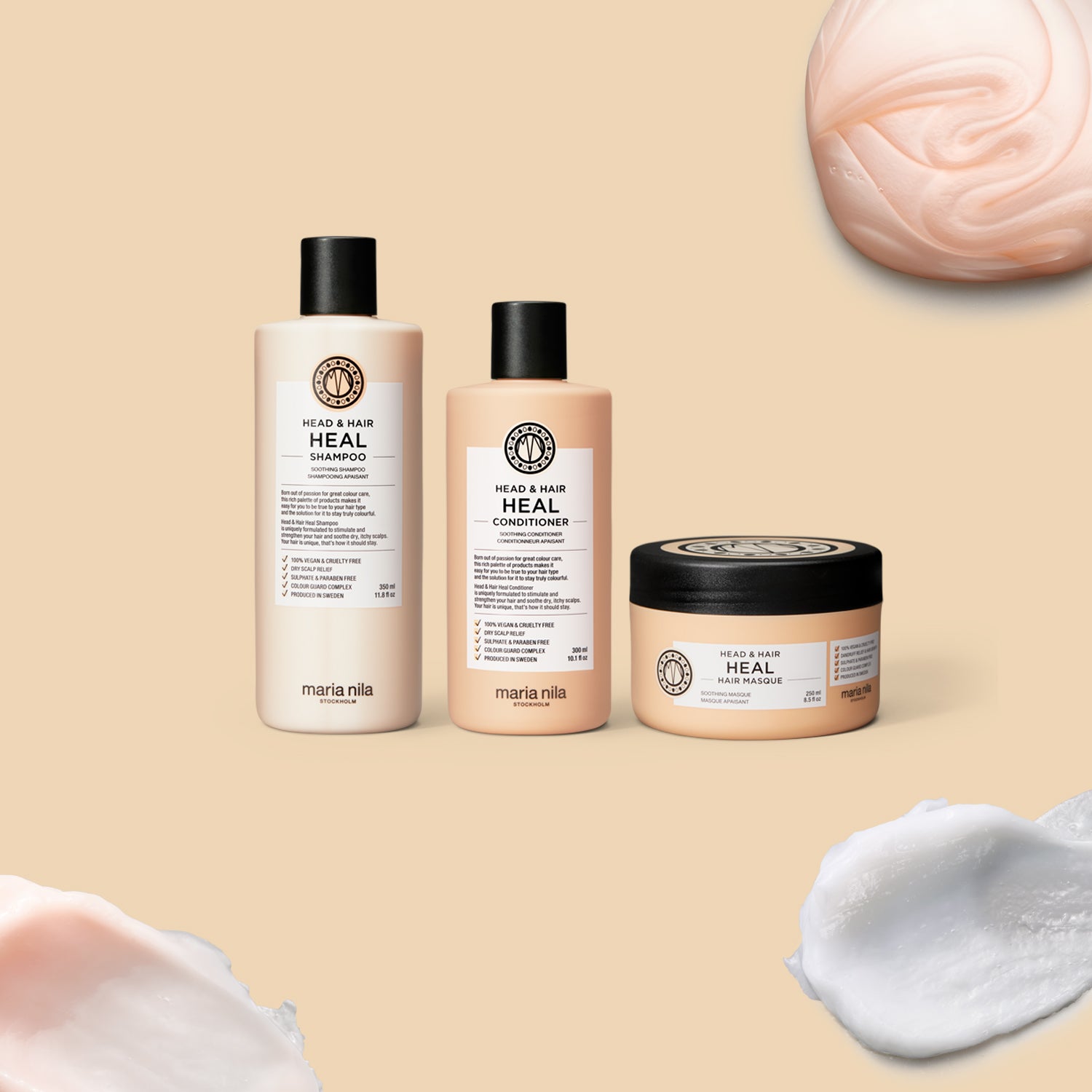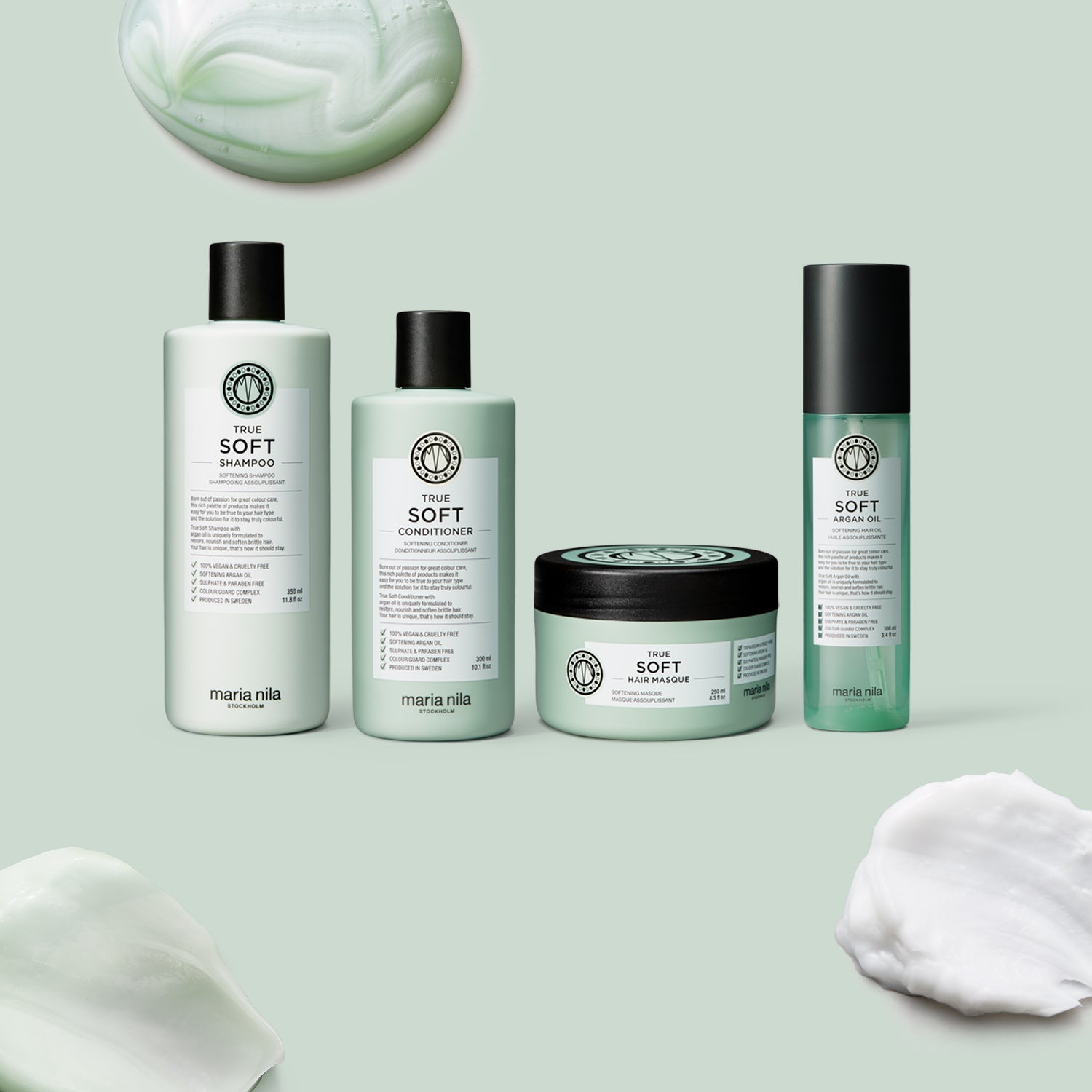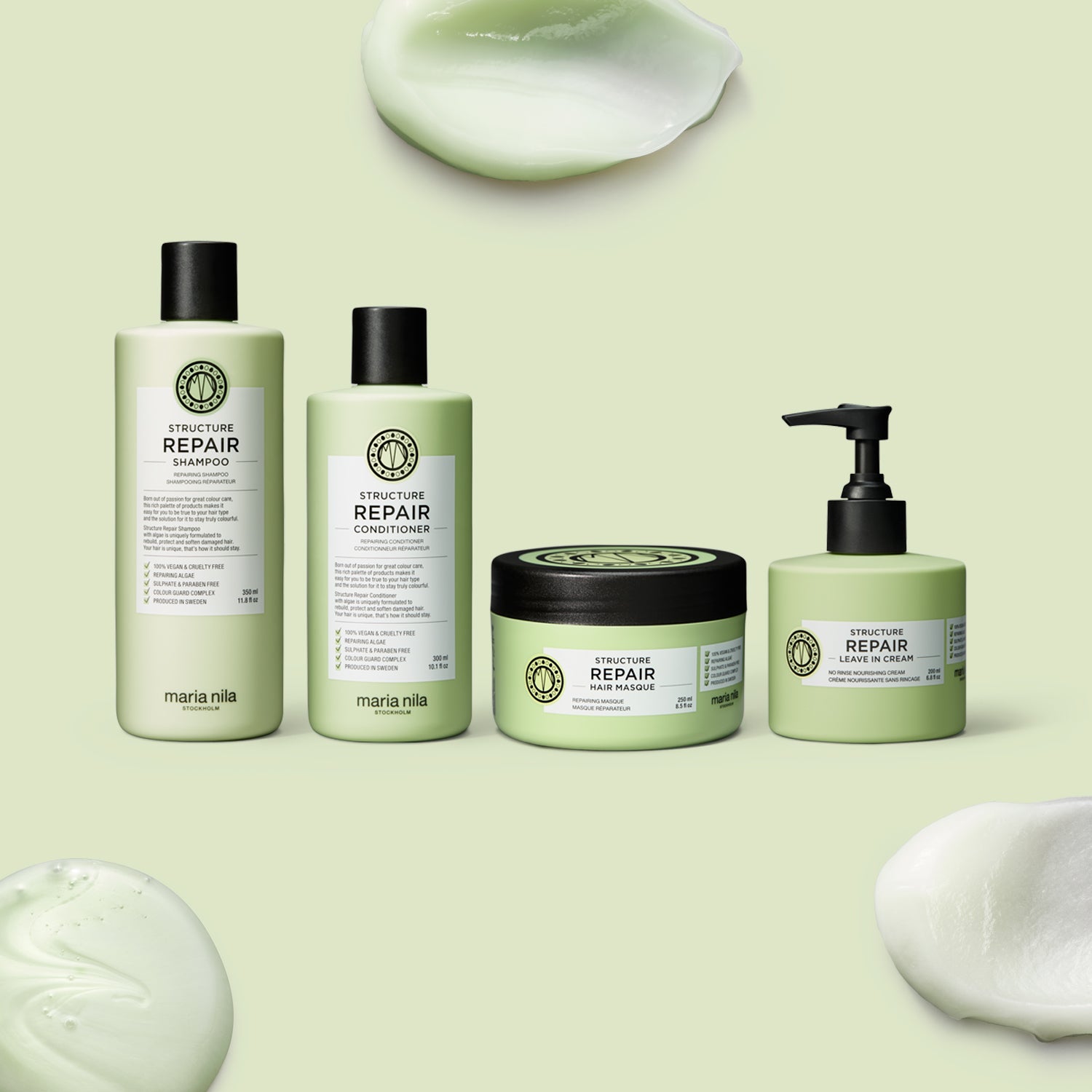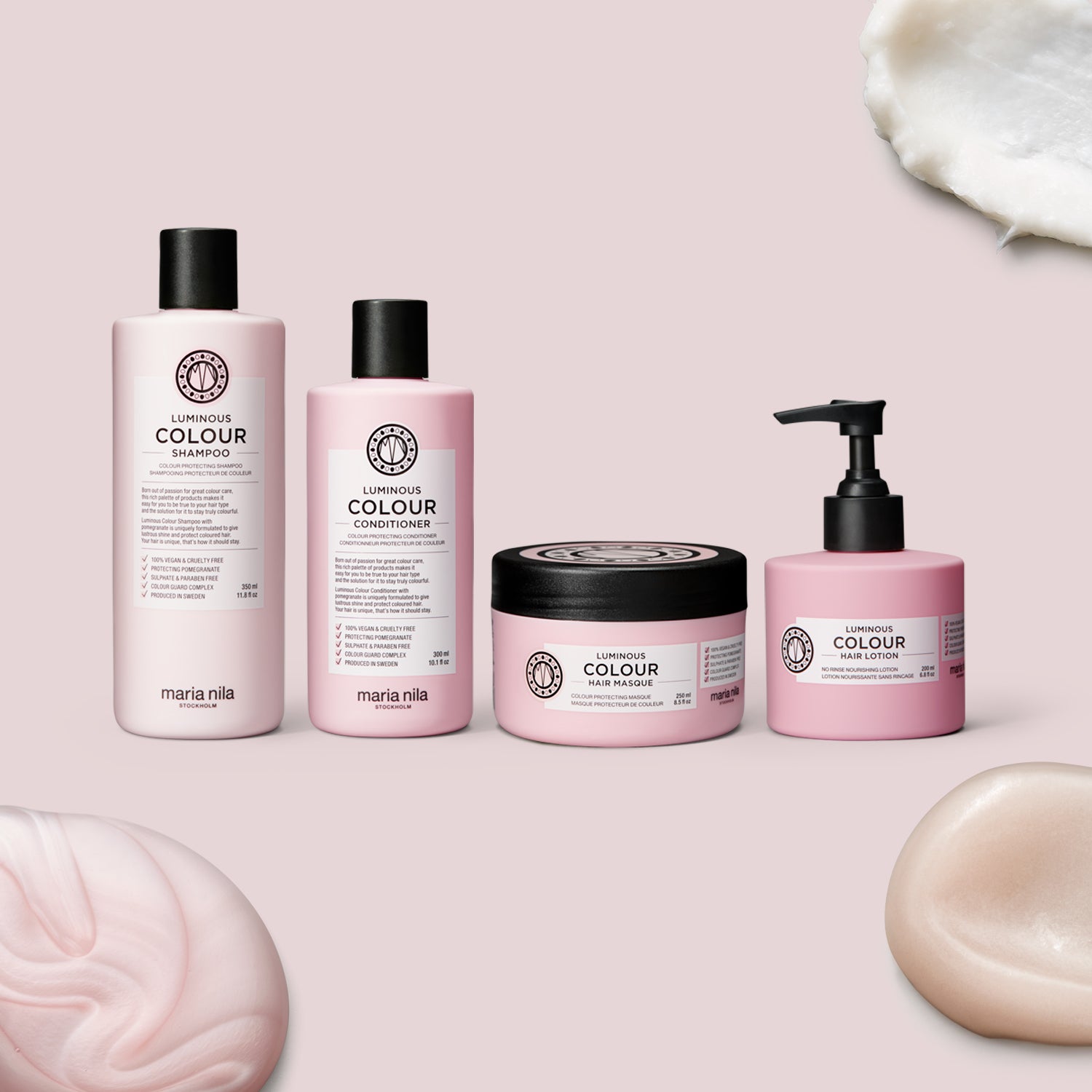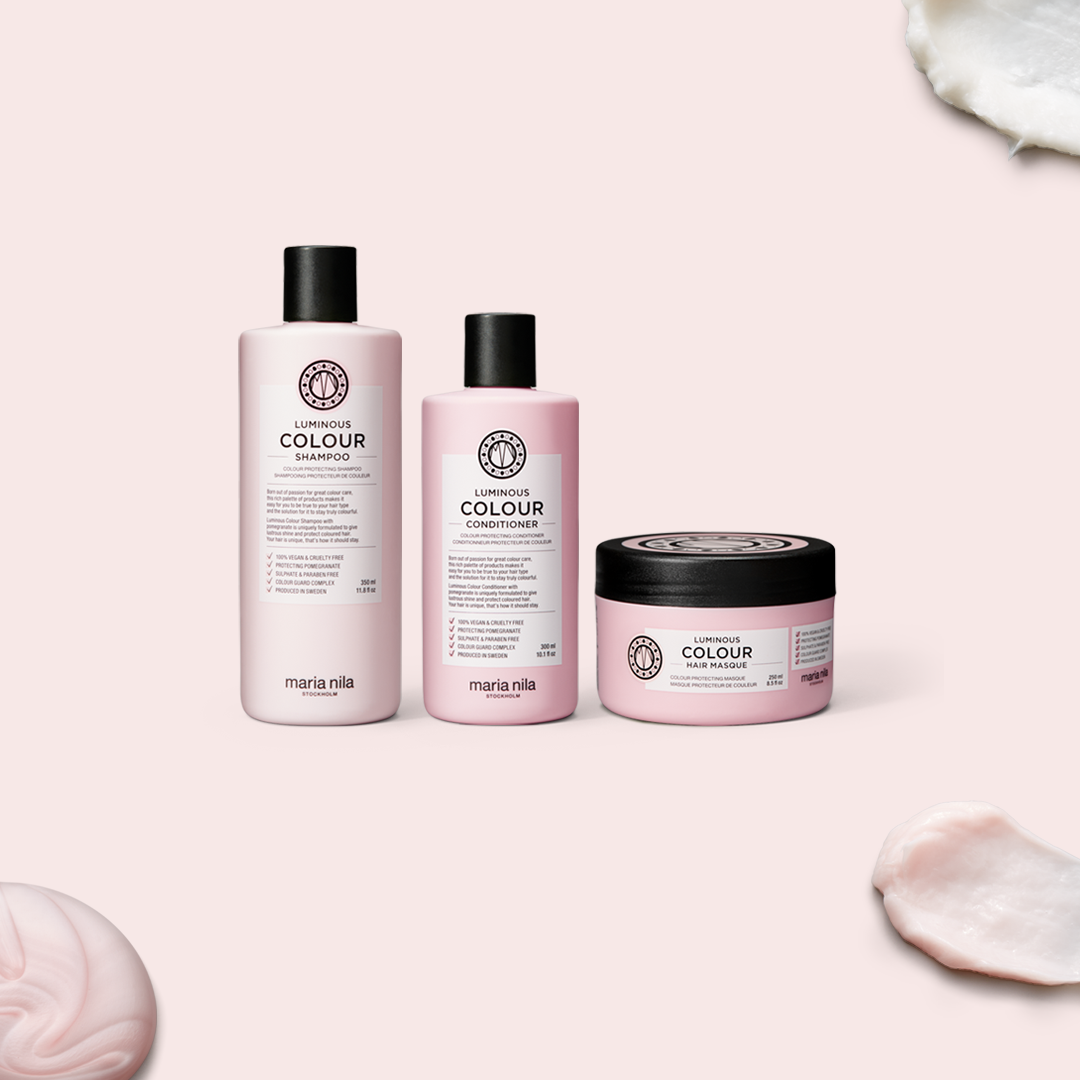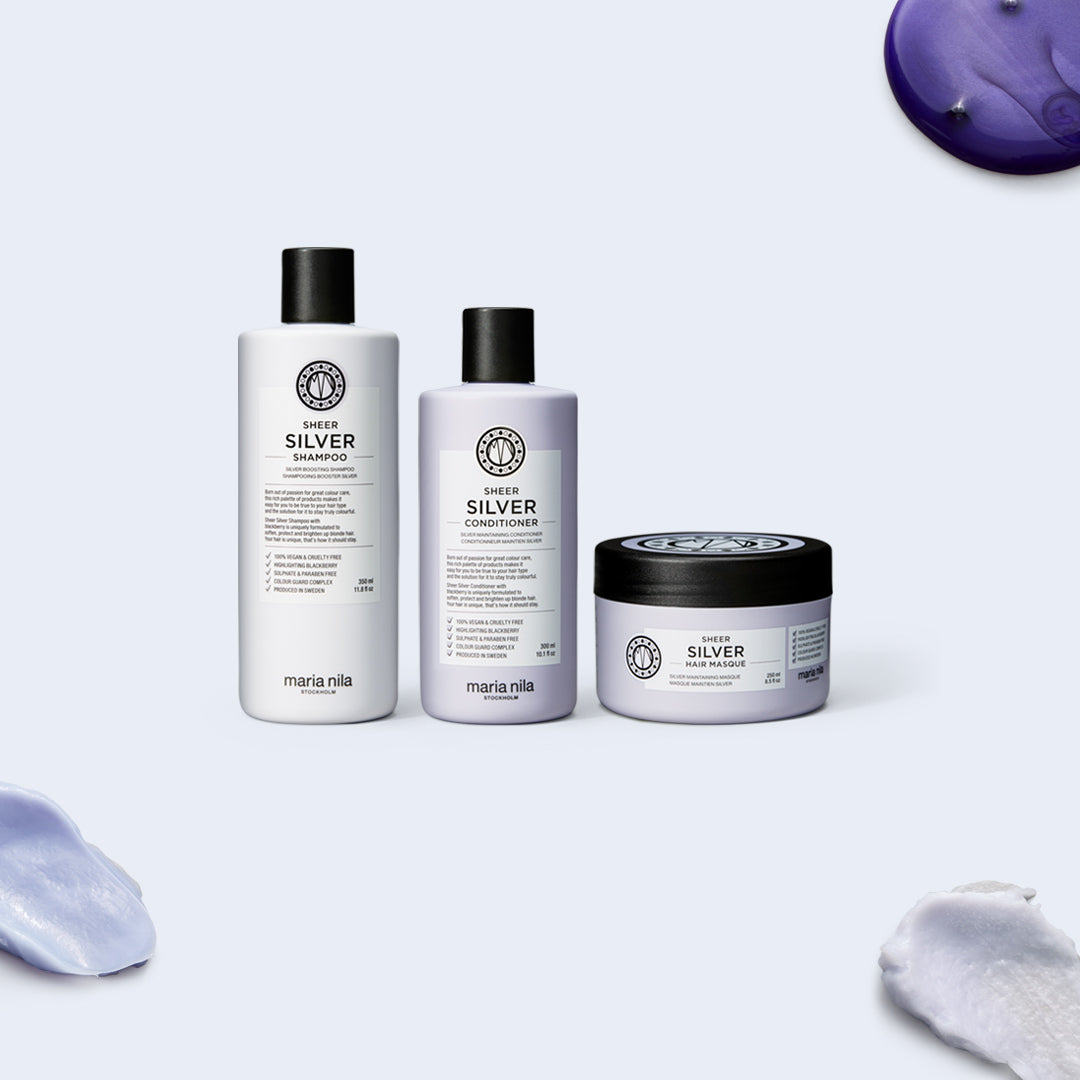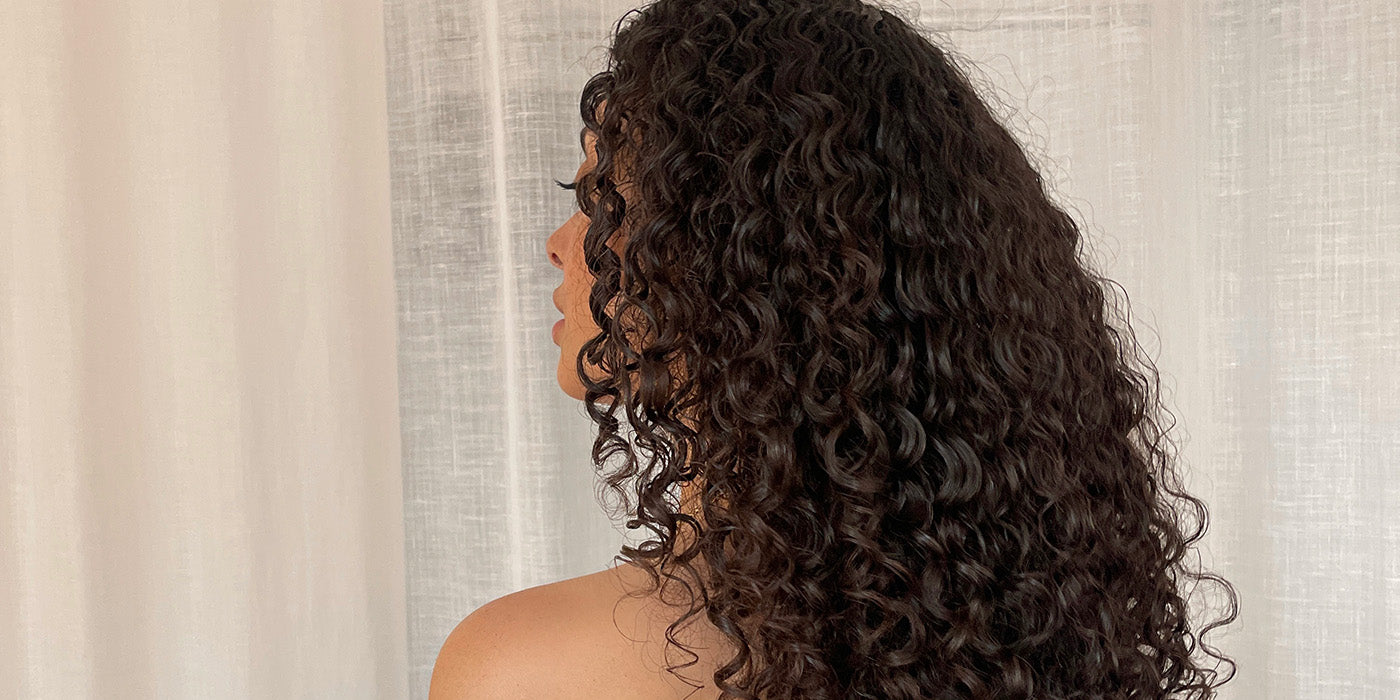We all want healthy hair and might have heard the claim that fewer washes are good for the hair. But when your scalp feels oily after a few days it can be hard to reduce the number of washes. So how often should you really wash your hair? Our experts have answered this question and have more advice on how to wash your hair in the best way!
How to wash your hair in the best way
- Start your routine by thoroughly rinsing your hair with water. Apply a small amount of shampoo and massage it through your scalp. Rinse and repeat the process, shampooing twice gives your hair a better foundation to capture the ingredients and benefits in your other haircare products.
- Many people follow up with conditioner, but our advice is that you use a hair mask after shampoo. When you wash your hair, the cuticle of the hair opens because of the pH is higher than it naturally is in our skin and hair. This makes the hair more receptive to the effect of the hair mask. Distribute the mask in the lengths of your hair and leave in for 5-10 minutes.
- Finish by applying the conditioner throughout lengths and rinse out. Conditioner helps to close the hair's cuticle and lock in the nourishing ingredients in the hair mask for a better result.
If you’re short on time or traveling and can’t bring both conditioner and hair mask, but still want soft and shiny hair, we recommend the travel sized Booster Masque. These finishing hair treatments are fast-acting and supercharged with active ingredients, stronger fragrances, and a lower pH to combine the effects of conditioner and mask. Simply apply the Booster Masque from your favorite Care & Style range after shampooing, let sit for 3 minutes and then rinse out.
How often you should wash your hair
It is generally recommended to wash your hair 2-3 times a week. This is also affected by factors such as hair type and lifestyle, for example if you sweat during exercise or use a lot of styling products. Our scalp naturally produces sebum, which causes the feeling of oily hair. This is why shampoos remove excess oil, dirt and product residues. But finding a good routine for how many times to wash your hair each week can be tricky when you want to avoid greasy hair.
The sebum that the scalp produces is not a bad thing in itself as these natural oils are important so your hair doesn’t appear dull and become brittle. Because shampoos are created to remove excess oils, excessive shampooing can lead to removing the natural oils that your hair needs. If you use a blow-dryer or heating tools after washing your hair, you put your hair through more wear and tear.
How often should you wash curly hair
Thick and curly hair is often drier, making it harder for the natural oils to coat the strands. This is also why thick and curly hair can appear less greasy than fine hair. People with these hair types can usually wait longer between washes and need the natural oils to retain moisture in the hair. A co-wash, that combines shampoo and conditioner, is a great alternative for curly hair that retains more moisture. Complement monthly or every 8th wash with a deep cleansing shampoo to revive your curls and create a healthy scalp.
How often should you wash fine and thin hair
The natural oils coat finer and thinner hair types faster, which is why this hair type can feel oily even just a day after washing. This hair type is usually less naturally dry and can be washed around three times a week. Dry shampoos are a great way to freshen up your hair between washes if you feel like your hair gets oily easily.
When washing your hair with natural products
Your hair type affects how often you should wash your hair as well as which hair care series that best suits your hair.
- If you have naturally dry hair and need products that have a moisturizing and softening effect, Maria Nila's True Soft series is for you. The argan oil, antioxidants and fatty acids add moisture for shiny and stronger hair.
- For colored hair, or if you want to give your natural hair color more shine, Luminous Color is the way to go. Pomegranate extract and Color Guard Complex both protect and add shine to your hair color.
- If you have damaged hair after chemical treatments and use a lot of heating tools, Structure Repair will help to give strength back to your hair. Repairing algae extract also helps frizzy hair regain softness and shine.
- If you are experiencing thin hair, we recommend the Pure Volume series. Provitamin B5 moisturizes the hair and adds long lasting volume.
- Unwanted brassy shades are common in blonde hair. To neutralize yellow and orange tones, Maria Nila has developed the Sheer Silver series with violet pigments and blackberry extracts.
- If you have a sensitive scalp or want to stimulate hair growth, Head & Hair Heal is the perfect choice. This series with aloe vera extracts and piroctone olamine is calming and works to prevent scalp problems.
- Curly hair can easily get dry, so opt for a the Coils & Curls Co-Wash that moisturizes and detangles.
- All hair types benefits from a deep cleanse every once in a while. Switch out your regular shampoo for Purifying Cleanse Shampoo around every 8th wash or once a month for healthier hair and scalp.
When you wash your hair with natural products
To give you the feeling of a scalp free from oils, many products contain sulfates, a substance that dissolves fat and makes shampoos lather. But sulfates not only remove excess oils from your hair but also washes away the natural oils. Products with sulfates can therefore make your hair drier and in the long run make your scalp produce more sebum when it tries to balance out the dryness. Maybe you have also heard about parabens in skin and hair products? Parabens is a preservative that is added to water-based products to make them last longer and stop bacteria and mold from growing. Parabens have been linked to both allergies and hormonal disruption and many people want to avoid them in their hair care routine.
Maria Nila's 100% vegan products are free from both sulfates and parabens. Instead, plant-based ingredients and more gentle alternatives are used to be friendlier to both you and your hair. It can feel like your hair becomes oily faster when first switching from a shampoo with sulfates. This is because the scalp needs to adjust the sebum production and get used to the milder products. During this period, dry shampoo is your best friend to help you get an extra day in between washes. When your hair gets used to more natural ingredients, you will have healthy and shiny hair to look forward to!



















































































